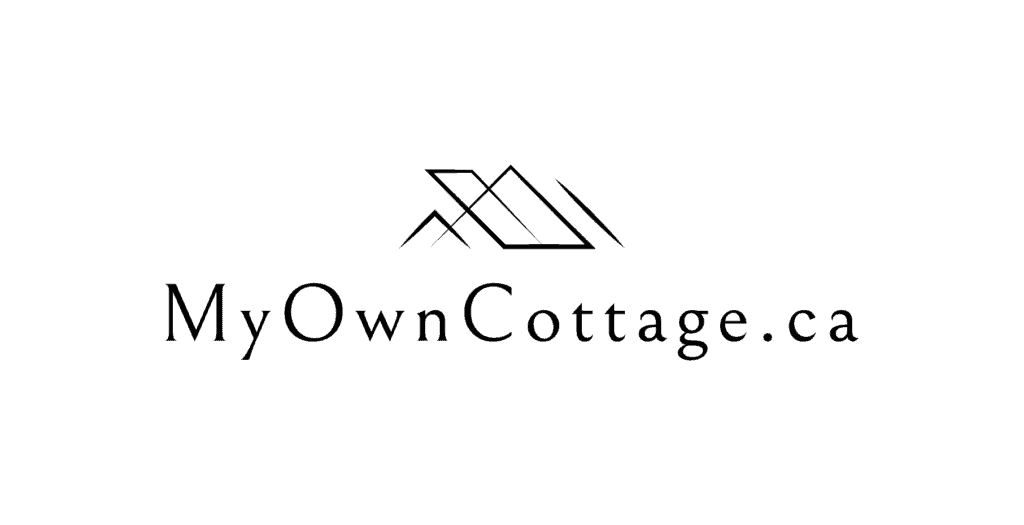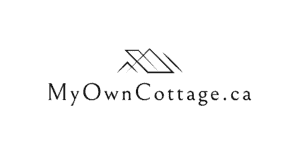Can a Prefab Cottage Survive Ontario’s Power Outages?
Can a prefab cottage survive Ontario’s power outages?
Learn how prefab cottages are built for resilience with backup heat sources, generators, and energy-smart design.
Can a Prefab Cottage Survive Ontario’s Power Outages?
Yes, a well-built prefab cottage can survive Ontario’s power outages if it includes winter-ready features like CSA A277-certified insulation, backup propane or wood heating.
These are often coupled with off-grid systems such as solar with battery storage or an automatic standby generator.
Many prefab cottages in Ontario are specifically designed to maintain safe indoor temperatures and protect plumbing during prolonged outages.
Winter in Ontario is stunning—but unpredictable.
If you’re planning to live year-round in a prefab cottage, one question looms large: What happens when the power goes out?
🔍 For a full breakdown of what’s required for four-season living, see our expert guide: Can You Live Year-Round in a Prefab Cottage in Ontario?
How Do Prefab Cottages Handle Power Outages in Ontario?
From heavy snowfalls to ice storms, Ontario’s winter weather can strain even the sturdiest homes.
However, today’s prefab cottages, especially those built by trusted cottage builders like My Own Cottage, are engineered to meet the challenge.
Importantly, we’re delivering safety, comfort, and peace of mind, even when the grid fails.
Are Prefab Cottages Vulnerable During Winter Power Failures?
Ontario winters often bring downed power lines and prolonged outages, especially in rural areas like Muskoka, Haliburton, or Kawartha Lakes.
Homeowners considering a prefab cottage in Ontario for year-round use often wonder:
Will my pipes freeze if the furnace shuts off?
What if I’m not there when the power fails?
Are prefab structures less insulated than traditional homes?
The answer: not necessarily.
In fact, many prefab homes are better insulated than stick-built homes due to advanced building techniques in a controlled environment.
But resilience depends on design choices, backup systems, and code compliance—all of which we’ll explore below.
Backup Power Options: Solar, Propane, and Generators
Modern prefab homes support multiple layers of backup power:
Battery-backed Solar Systems: Ideal for off-grid prefab homes in Ontario. Great for powering lights, fridges, and communication devices during a blackout.
Propane Heaters and Wood Stoves: Provide passive radiant heat even when the power is down—a huge advantage in places where temperatures drop below -20°C.
Automatic Standby Generators: Turn on within seconds of a power failure. Many prefab floor plans can accommodate dedicated generator hookups for seamless integration.
🔊 “We always recommend dual heat sources—at least one non-electric,” says Sarah Morrison, a prefab housing consultant with 15+ years in off-grid design. “That layer of redundancy buys you time and protects your pipes.”
Building for Resilience: Heat Retention and Passive Design
Beyond backup power, energy efficiency is your first defense.
A prefab cottage designed for winter should feature:
High R-value insulation in walls, roof, and underflooring.
High-performance windows and doors, with double or triple glazing and thermal breaks.
Air sealing and strategic placement of the entry door to minimize drafts.
Thermal mass and passive solar design to retain heat during blackouts.
Passive Design Principles for Maximum Heat Retention in Cold Climates
Passive homes—often dubbed “passive house” builds—can retain safe indoor temperatures for days without power.
At Myowncottage.ca, some tiny home or custom cabin designs integrate these principles into just 600–800 square feet of high quality product.
🌞 Customer Story: Jim and Lisa S. from Bracebridge lived three days off-grid during a 2023 storm. Their prefab’s radiant floor heating and passive solar layout “kept us safe and surprisingly cozy,” Lisa recalls. “The living room never dipped below 15°C.”
What Ontario Building Code Recommends for Emergency Preparedness
Ontario’s Building Code mandates specific features for winterized prefab homes, including:
Minimum R-values for insulation (e.g., R-22 walls, R-50 ceilings in cold zones).
Emergency egress windows in bedrooms.
Protection for water lines to prevent freezing.
Builders often exceed these requirements to improve energy efficiency, especially for prefab homes intended as vacation homes, home offices, or custom homes.
If you’re considering a prefab in Ontario, make sure your builder:
Uses CSA A277-certified modules for compliance.
Knows local real estate zoning and utility access.
Provides transparent documentation on building codes and safety standards.
Planning Ahead: What to Discuss with Your Builder
Power resilience starts before you build. In your consultation, ask:
“What’s included in the base price—and what are additional costs for off-grid upgrades?”
“Can this model support solar or generator integration?”
“What square footage options allow for dual heating systems?”
“Are there floor plans that isolate critical areas for heat retention?”
At Myowncottage.ca, every prefab cottage consultation includes a review of:
Your ideal location and terrain
Square foot and design preferences
Available off-grid utility packages
Your goals—guest house, perfect home, or custom design
🔧 Pro Tip: Look for models built in a controlled environment—these offer tighter seals, fewer construction delays, and faster construction timelines compared to traditional homes.
Can a Prefab Withstand Ontario’s Winter Power Woes?
Absolutely.
The entire process—from choosing a prefab model to final delivery—can be tailored to meet Ontario’s toughest weather conditions.
With smart planning and expert guidance, prefab cottages can offer peace of mind, energy savings, and a dream home that thrives even when the lights go out.
Building & Designing Winter-Resilient Prefab Homes
At My Own Cottage, our team has over a decade of hands-on experience building and designing winter-resilient prefab cottages in Ontario.
Naturally, all of our designs comply with Ontario building codes and exceed CSA A277 standards.
We work with homeowners across Muskoka, Haliburton, and beyond to create custom solutions that suit unique needs across the province
From solar-ready floor plans to dual-heat systems—it’s all backed by exceptional service and transparent pricing every step of the way.
➡️ Book your free consultation or call us directly at 1-705-345-9337 to start planning a prefab cottage that’s built for year-round living, no matter the weather.
🧑💼 Request a Free Consultation
📲 Call Us Directly: (705) 345-9337
✅ Ontario-Built | ⚡ Energy-Efficient | 🏡 Fully Customizable | 🚚 Fast Delivery
Alternatively, for your convenience, you can also simply fill out the contact form below and we’ll get back to you soon! 👇
❓ FAQ: Can a Prefab Cottage Survive Ontario’s Power Outages?
Are prefab homes legal in Ontario?
Yes, prefab homes are legal in Ontario and must meet Ontario Building Code requirements and CSA A277 certification for modular construction. Once approved, they qualify for the same permits and inspections as site-built homes.
How much does it cost to build a prefab cottage in Ontario?
Building a prefab cottage in Ontario typically costs $250 to $400 per square foot, depending on customization, finishes, and site conditions. A 1,000 sq/ft prefab build averages $250,000 to $400,000, excluding land and service hookups.
Are prefab cottages energy-efficient?
Yes, modern prefab cottages are highly energy-efficient due to precision factory construction, tight building envelopes, and options for high R-value insulation and high-performance windows. Many models exceed Ontario energy code standards.
Can prefab cottages handle power outages in Ontario?
Yes, prefab cottages can withstand Ontario’s power outages when equipped with backup power systems like generators, solar batteries, and alternative heat sources. Winter-ready designs with passive heating and energy-efficient construction provide added resilience.
What’s the best backup power system for a prefab cottage?
A hybrid setup combining solar panels, a lithium-ion battery system (like Tesla Powerwall), and a propane or gas generator offers the most reliable backup for prefab cottages during outages in Ontario’s winter climate.
Are prefab houses cheap or low-quality?
No, prefab houses are not low-quality and are often more cost-stable than traditional homes due to reduced labor costs and faster construction. They are permanent, code-compliant dwellings with high-quality materials and energy-saving features.
What emergency preparations are needed for a prefab cottage?
To prepare a prefab cottage for winter power outages, include:
An emergency kit (flashlights, food, radio)
Alternative heat (wood stove or propane)
Water access (bottled or gravity-fed)
A charged phone or hotspot for communication
Does insurance cover power outage damages in prefab homes?
Yes, most Ontario homeowners’ insurance policies cover power outage-related damages such as frozen pipes or food spoilage. Check for clauses related to backup systems and confirm coverage for off-grid prefab features.
Need help choosing the right prefab model for off-grid or winter-ready living?
✅ Need help choosing the right prefab model for off-grid or winter-ready living? Book a free consultation with My Own Cottage or call 1-705-345-9337 to speak with a prefab expert.

